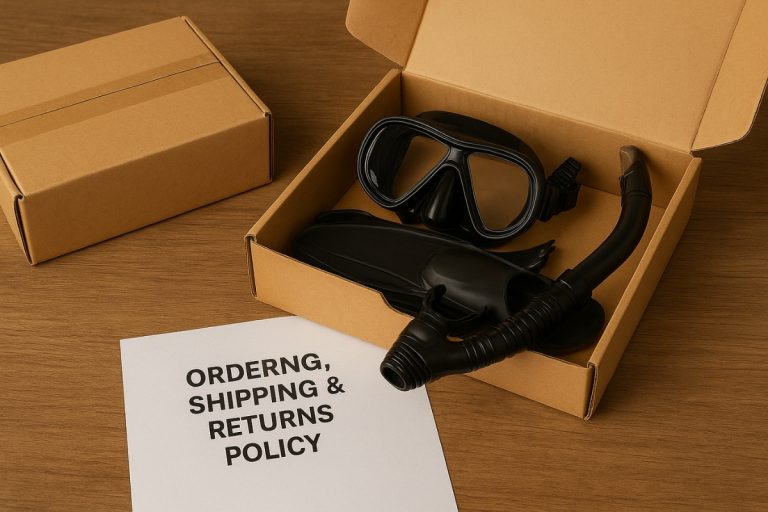- Overview of Group & Wholesale Inquiries
- Products Offered for Wholesale
- Wholesale Inquiry Process
- Target Industries for Wholesale Partnerships
- Customization and Branding Options
- Sustainability and Ethical Practices
- Promotions and Clearance Deals
- Contacting for Wholesale Inquiries
- Frequently Asked Questions
- Navigating the Wholesale Landscape
Overview of Group & Wholesale Inquiries
The landscape of wholesale business has transformed significantly in recent years, offering unprecedented opportunities for companies to scale their operations while building meaningful partnerships. Group and wholesale inquiries represent a strategic approach to business growth that benefits both suppliers and buyers through volume-based transactions and collaborative relationships.
Understanding how to navigate wholesale partnerships can unlock substantial cost savings and operational efficiencies. Whether you’re a small business looking to expand your product offerings or a large organization seeking to streamline procurement processes, wholesale relationships provide access to competitive pricing structures and specialized products that might otherwise be unavailable through traditional retail channels.
Modern wholesale operations have evolved beyond simple bulk purchasing. Today’s wholesale partnerships often include comprehensive support services, customization options, and flexible ordering policies that accommodate diverse business needs. Many suppliers now offer no minimum order requirements, making wholesale accessible to businesses of all sizes while maintaining the benefits of volume pricing.
Definition and Importance of Wholesale Inquiries
Wholesale inquiries serve as the initial touchpoint between potential business partners, establishing the foundation for long-term commercial relationships. These formal requests for information allow businesses to evaluate product offerings, pricing structures, and partnership terms before committing to large-scale purchases.
The importance of properly structured wholesale inquiries cannot be overstated. They provide suppliers with essential information about potential partners, including business type, distribution reach, and specific product needs. This information enables suppliers to tailor their offerings and create customized solutions that align with each partner’s unique requirements and market position.
Key Features of Group Orders
Group orders distinguish themselves through several key characteristics that benefit both buyers and suppliers. Volume-based pricing structures offer significant cost advantages, while consolidated shipping reduces logistical complexities and environmental impact. These orders often include flexible payment terms and extended delivery schedules that accommodate varying business cycles.
Customization options represent another crucial feature of group orders. Many suppliers offer logo printing services, branded packaging, and tailored product configurations that help businesses maintain their unique identity while benefiting from wholesale pricing. This combination of cost efficiency and brand consistency makes group orders particularly attractive for organizations planning events or promotional campaigns.
Benefits of Wholesale Partnerships
Wholesale partnerships create mutual value through shared resources, expertise, and market access. Suppliers benefit from predictable order volumes and reduced marketing costs, while buyers gain access to competitive pricing and specialized product knowledge. These relationships often evolve into strategic alliances that drive innovation and market expansion.
Long-term wholesale partnerships also provide stability in an increasingly volatile business environment. Established relationships with reliable suppliers help businesses navigate supply chain disruptions and market fluctuations more effectively. Additionally, wholesale partners often provide valuable market insights and product development feedback that can inform strategic business decisions.
Products Offered for Wholesale
The diversity of products available through wholesale channels has expanded dramatically, reflecting the growing sophistication of wholesale markets and the diverse needs of business customers. From traditional clothing and promotional items to specialized health products and customized kits, wholesale suppliers now offer comprehensive product portfolios designed to serve multiple industries and applications.
Understanding the breadth of wholesale product offerings helps businesses identify opportunities for cost savings and operational improvements. Many suppliers specialize in specific product categories while maintaining the flexibility to accommodate special requests and custom configurations. This specialization ensures product quality and expertise while providing the scale necessary for competitive wholesale pricing.
The integration of gear warranty and repair services into wholesale offerings adds significant value for business customers. These comprehensive service packages reduce total cost of ownership while ensuring product reliability and performance over extended periods.
Clothing and Apparel
Wholesale clothing and apparel represent one of the most established and diverse wholesale categories. Suppliers typically offer extensive selections of basic garments, seasonal items, and specialized workwear suitable for various industries and applications. Quality standards in wholesale apparel have improved significantly, with many suppliers offering name-brand merchandise at substantial discounts.
Customization services have become increasingly sophisticated in the apparel wholesale sector. Logo printing, embroidery, and screen printing services allow businesses to create branded merchandise for employees, promotional campaigns, or retail resale. Many suppliers now offer digital mockup services and sample programs that help customers visualize finished products before placing large orders.
Promotional Items and Customization
The promotional products industry has evolved into a sophisticated wholesale sector offering thousands of customizable items suitable for marketing campaigns, corporate gifts, and event giveaways. Water bottles, awards, office supplies, and technology accessories represent just a fraction of available promotional products, with new items regularly added to accommodate changing market trends.
Advanced customization capabilities set modern promotional product suppliers apart from traditional vendors. Digital printing, laser engraving, and full-color graphics enable businesses to create professional-quality branded items that effectively communicate their message and values. Many suppliers also offer design services and marketing consultation to help customers maximize the impact of their promotional investments.
Health and Personal Care Products
Wholesale health and personal care products have gained prominence as businesses increasingly focus on employee wellness and customer safety. This category includes everything from basic hygiene supplies to specialized wellness products and safety equipment. Quality assurance and regulatory compliance are particularly important in this sector, with reputable suppliers maintaining strict standards and certifications.
The integration of educational resources and ingredient transparency has become a key differentiator in wholesale health products. Suppliers who provide detailed product information, safety data sheets, and usage guidelines help businesses make informed purchasing decisions while ensuring compliance with workplace safety regulations and customer expectations.
Wholesale Inquiry Process
Navigating the wholesale inquiry process effectively requires understanding both the supplier’s requirements and your own business needs. Successful wholesale relationships begin with comprehensive inquiries that provide suppliers with the information they need to create tailored proposals while ensuring buyers receive accurate pricing and service commitments.
The modern wholesale inquiry process has been streamlined through digital platforms and standardized forms, making it easier for businesses to connect with potential suppliers. However, the quality of information provided during the initial inquiry phase significantly impacts the relevance and accuracy of supplier responses. Taking time to prepare detailed inquiries ultimately saves time and ensures better outcomes.
Payment methods and financing options play a crucial role in wholesale relationships, with many suppliers offering flexible terms that accommodate different business cash flow patterns. Understanding these options during the inquiry phase helps businesses plan their procurement strategies more effectively.
How to Submit a Wholesale Inquiry
Most suppliers now offer multiple channels for wholesale inquiries, including online forms, email contacts, and direct phone consultations. Online inquiry forms have become increasingly popular due to their convenience and ability to capture structured information that helps suppliers respond more effectively. These forms typically include fields for business information, product interests, and specific requirements.
When submitting wholesale inquiries, timing can be important. Many suppliers experience seasonal fluctuations in demand and may offer better terms during slower periods. Additionally, allowing adequate time for supplier responses and evaluation ensures better decision-making and negotiation outcomes.
Information Required for Inquiries
Comprehensive wholesale inquiries typically require detailed business information, including company type, location, industry focus, and distribution reach. Tax identification numbers, business licenses, and trade references may also be required, particularly for larger wholesale relationships. Providing accurate and complete information expedites the evaluation process and demonstrates professionalism.
Product-specific information is equally important in wholesale inquiries. Quantity requirements, preferred specifications, customization needs, and delivery timelines help suppliers create accurate proposals. Budget parameters and payment preferences also influence supplier recommendations and pricing structures.
Follow-up Procedures
Effective follow-up procedures ensure that wholesale inquiries progress smoothly from initial contact to finalized agreements. Most suppliers provide estimated response times and preferred communication methods during the inquiry process. Maintaining organized records of all communications and proposals facilitates comparison and decision-making.
Regular follow-up communication demonstrates serious interest while providing opportunities to clarify requirements and negotiate terms. However, balancing persistence with patience is important, as wholesale evaluations often require time for internal approvals and pricing calculations.
Target Industries for Wholesale Partnerships
Wholesale partnerships span numerous industries, each with unique requirements and opportunities. Understanding industry-specific needs helps both suppliers and buyers identify the most suitable partnership opportunities while ensuring that product offerings align with market demands and regulatory requirements.
The diversification of wholesale markets has created opportunities for suppliers to serve multiple industries simultaneously while developing specialized expertise in key sectors. This approach provides stability through market diversification while enabling deeper customer relationships and more tailored service offerings.
Retail and E-commerce
Retail and e-commerce businesses represent major wholesale market segments, requiring diverse product offerings and flexible fulfillment capabilities. These partnerships often involve private labeling, drop-shipping arrangements, and seasonal inventory management that requires sophisticated logistics and communication systems.
The growth of online retail has created new opportunities for wholesale partnerships, particularly in areas like promotional products, seasonal merchandise, and specialty items. E-commerce businesses often require smaller minimum orders and faster turnaround times, leading to more flexible wholesale programs that accommodate digital business models.
Health and Supplements
The health and supplements industry presents unique wholesale opportunities characterized by strict regulatory requirements and quality standards. Wholesale partnerships in this sector often involve educational support, compliance assistance, and specialized storage and handling requirements that ensure product integrity and regulatory compliance.
Consumer demand for transparency and quality in health products has elevated the importance of supplier credentials and certifications. Wholesale partners in this industry must demonstrate expertise in regulatory compliance, quality assurance, and product education to serve customers effectively.
Charitable Organizations
Charitable organizations represent a growing wholesale market segment with unique needs and constraints. These partnerships often involve customized kits, educational materials, and products specifically designed for volunteer activities and community outreach programs. Pricing considerations and mission alignment are particularly important in these relationships.
Many suppliers now offer specialized programs for charitable organizations, including discounted pricing, flexible payment terms, and customization services that help nonprofits maximize their impact. These partnerships often extend beyond simple transactions to include collaborative program development and community engagement initiatives.
Customization and Branding Options
Modern wholesale relationships increasingly emphasize customization and branding capabilities that help businesses maintain their unique identity while benefiting from wholesale pricing and convenience. These services have evolved from simple logo printing to comprehensive branding solutions that support marketing objectives and brand consistency across multiple touchpoints.
The sophistication of customization options available through wholesale channels has increased dramatically, with many suppliers offering design services, digital proofing, and quality guarantees that rival specialized custom manufacturers. This evolution has made wholesale customization accessible to businesses of all sizes while maintaining professional quality standards.
Logo Printing Services
Logo printing services represent the foundation of wholesale customization, offering businesses the ability to brand products with their corporate identity. Modern printing technologies enable high-quality reproduction on diverse materials and product types, from textiles and plastics to metals and ceramics. Digital printing capabilities have particularly expanded options for small-quantity customization.
Quality control in logo printing has become increasingly important as businesses recognize the impact of branded merchandise on their professional image. Reputable wholesale suppliers now offer color matching, proof approval processes, and quality guarantees that ensure consistent results across large orders and repeat purchases.
Tailored Kits for Events
Event-specific product kits have become popular wholesale offerings that combine convenience with customization. These kits typically include multiple coordinated items designed for specific applications, such as trade shows, employee orientation, or customer appreciation events. The ability to customize kit contents and packaging creates unique value propositions for event organizers.
The logistics of kit assembly and fulfillment require specialized capabilities that distinguish experienced wholesale suppliers from general product vendors. Inventory management, quality control, and delivery coordination become particularly important when managing complex kit orders with multiple components and customization requirements.
Impactful Volunteer Kits
Volunteer kits represent a specialized customization category designed to support charitable activities and community engagement programs. These kits often combine practical items with educational materials and branded elements that reinforce organizational missions and values. The design of effective volunteer kits requires understanding both practical needs and motivational factors.
Successful volunteer kit programs often involve ongoing partnerships between suppliers and charitable organizations, with regular evaluation and refinement of kit contents based on feedback and program outcomes. This collaborative approach ensures that kits remain relevant and effective while providing opportunities for continuous improvement and innovation.
Sustainability and Ethical Practices
Environmental and social responsibility have become critical factors in wholesale partnerships, with businesses increasingly evaluating suppliers based on their sustainability practices and ethical standards. This shift reflects growing consumer awareness and regulatory requirements that make sustainability a business imperative rather than simply a marketing consideration.
Wholesale suppliers are responding to these demands by implementing comprehensive sustainability programs that address everything from product sourcing and manufacturing to packaging and transportation. These initiatives often create competitive advantages while supporting customer sustainability goals and regulatory compliance requirements.
Commitment to Climate Justice
Climate justice considerations are increasingly influencing wholesale purchasing decisions, with businesses seeking suppliers who demonstrate genuine commitment to environmental protection and social equity. This involves evaluating supplier practices related to carbon emissions, renewable energy usage, and community impact in addition to traditional quality and pricing factors.
Many wholesale suppliers now provide detailed sustainability reporting and carbon footprint calculations that help customers make informed purchasing decisions. These transparency initiatives support corporate sustainability reporting requirements while enabling businesses to align their procurement practices with their environmental commitments.
Educational Resources Provided
Educational resources have become valuable components of wholesale partnerships, particularly in industries where product knowledge and proper usage significantly impact outcomes. Suppliers who provide comprehensive educational materials, training programs, and ongoing support create additional value that extends beyond the products themselves.
The integration of educational resources into wholesale offerings reflects the evolving role of suppliers from simple product providers to strategic partners who contribute to customer success. This approach often leads to stronger, longer-term relationships and higher customer satisfaction levels.
Safety and Ingredient Transparency
Transparency regarding product safety and ingredients has become essential in wholesale relationships, particularly for products used in workplace environments or consumer applications. Detailed safety data sheets, ingredient lists, and usage guidelines help businesses ensure compliance with safety regulations and customer expectations.
The availability of comprehensive product information also supports informed decision-making and risk management. Businesses can evaluate potential liability issues and ensure that purchased products align with their safety standards and customer requirements.
Promotions and Clearance Deals
Strategic promotions and clearance programs represent important components of wholesale relationships, providing opportunities for significant cost savings while helping suppliers manage inventory and seasonal fluctuations. Understanding how to identify and capitalize on these opportunities can substantially impact procurement costs and product availability.
The timing and structure of wholesale promotions often reflect broader market conditions and supplier inventory cycles. Businesses that understand these patterns can time their purchases to maximize savings while ensuring adequate inventory levels for their operational needs.
Regular Clearance Offers
Clearance programs provide opportunities to purchase quality products at substantial discounts, often involving seasonal merchandise, discontinued items, or excess inventory. These programs require flexibility in product specifications and timing but can deliver exceptional value for businesses with appropriate applications.
Successful participation in clearance programs often requires maintaining relationships with multiple suppliers and staying informed about available opportunities. Many suppliers now offer notification services and priority access programs that help preferred customers identify and secure clearance merchandise before it becomes widely available.
Best-Selling Promotional Products
Promotional product trends evolve continuously, with certain items consistently performing well across diverse applications and industries. Understanding these trends helps businesses make informed purchasing decisions while ensuring that promotional investments deliver maximum impact and value.
The identification of best-selling promotional products often reflects broader consumer preferences and market trends. Suppliers who track and share this information provide valuable market intelligence that can inform broader marketing and business strategies.
Bulk Buying Incentives
Volume-based incentives remain fundamental to wholesale relationships, with suppliers offering increasingly sophisticated programs that reward loyalty and volume commitments. These programs often include tiered pricing, extended payment terms, and priority service levels that provide tangible benefits for high-volume customers.
Modern bulk buying incentives often extend beyond simple price discounts to include value-added services, customization options, and exclusive product access. This evolution reflects the competitive nature of wholesale markets and the importance of creating comprehensive value propositions that address diverse customer needs.
Contacting for Wholesale Inquiries
Effective communication channels are essential for successful wholesale relationships, with suppliers offering multiple contact methods designed to accommodate different customer preferences and inquiry types. Understanding the most appropriate communication channels for specific situations can significantly improve response times and outcomes.
The evolution of wholesale communication has been influenced by digital technologies and changing business practices, with many suppliers now offering integrated communication platforms that combine traditional methods with modern digital tools. This integration provides flexibility while maintaining the personal relationships that are often crucial to wholesale success.
Store locations and hours information becomes particularly relevant for wholesale customers who prefer face-to-face meetings or need to inspect products before placing large orders. Many suppliers maintain showrooms or meeting facilities specifically designed to support wholesale customer needs.
Methods of Contact
Modern wholesale suppliers typically offer multiple contact methods, including phone, email, online forms, and in-person meetings. Each method has advantages depending on the complexity of the inquiry and the customer’s communication preferences. Phone contact often provides immediate responses for urgent inquiries, while online forms ensure that all necessary information is captured systematically.
The choice of contact method can also influence the type and quality of response received. Complex inquiries involving multiple products or customization requirements often benefit from phone or in-person discussions, while straightforward pricing requests may be handled efficiently through online forms or email.
Response Times
Understanding typical response times helps set appropriate expectations and plan procurement timelines effectively. Most wholesale suppliers provide estimated response times for different types of inquiries, with complex custom projects typically requiring longer evaluation periods than standard product requests.
Response time expectations should also consider seasonal fluctuations and industry cycles that may affect supplier availability and processing capacity. Planning inquiries well in advance of needed delivery dates helps ensure adequate time for evaluation, negotiation, and production scheduling.
Joining the Mailing List
Mailing list subscriptions provide ongoing access to promotional offers, new product announcements, and industry insights that can inform purchasing decisions and identify cost-saving opportunities. Many suppliers offer segmented mailing lists that deliver targeted information based on customer interests and purchase history.
The value of mailing list participation extends beyond promotional offers to include market intelligence and trend information that can inform broader business strategies. Regular communication from wholesale suppliers often provides insights into industry developments and competitive dynamics that may not be available through other sources.
Frequently Asked Questions
What are group and wholesale inquiries?
Group and wholesale inquiries are formal requests for information that establish the foundation for partnerships between suppliers and businesses, focusing on volume-based transactions.
What are the benefits of wholesale partnerships?
Wholesale partnerships offer mutual value through cost savings, access to specialized products, and stability in supply chains, benefiting both suppliers and buyers.
How can businesses effectively submit a wholesale inquiry?
Businesses can submit wholesale inquiries through various channels such as online forms, emails, or phone calls, ensuring they provide comprehensive information to facilitate accurate supplier responses.
What customization options are available in wholesale orders?
Customizations in wholesale orders can include logo printing, branded packaging, and tailored product configurations, allowing businesses to maintain their identity while benefiting from wholesale pricing.
How do sustainability practices impact wholesale partnerships?
Sustainability practices are increasingly important in wholesale partnerships, as businesses seek suppliers committed to environmental responsibility and ethical standards.
Navigating the Wholesale Landscape
Understanding the intricacies of wholesale inquiries and partnerships is essential for businesses aiming to leverage cost efficiencies and build strategic alliances. By navigating the inquiry process effectively, companies can unlock opportunities that drive growth and foster long-term relationships with suppliers.




